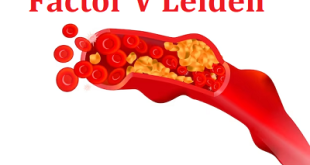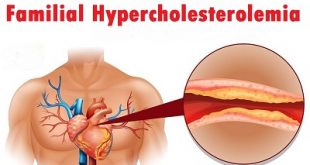What is Familial Mediterranean Fever?
Familial Mediterranean Fever (FMF) is a rare genetic autoinflammatory disorder characterized by recurrent, self-limiting episodes of fever and inflammation affecting the serous membranes, which line the body cavities such as the lining of the abdomen, chest, and joints. FMF is primarily associated with populations originating from the Mediterranean basin, including people of Sephardic Jewish, Armenian, Turkish, and Arab descent. The condition is caused by mutations in the MEFV gene, which encodes the protein pyrin. Pyrin is involved in regulating the inflammatory response, and mutations in the MEFV gene lead to dysregulation of the immune system, resulting in periodic inflammation and symptoms.
Typically, FMF manifests as short episodes of fever accompanied by abdominal pain, chest pain, joint inflammation, and skin rashes. These episodes can vary in severity and duration, with symptom-free intervals between attacks. Over time, recurrent inflammation can lead to complications such as amyloidosis, a buildup of abnormal proteins in organs, which may result in kidney damage. Although there is no cure for FMF, treatment often involves the use of colchicine, a medication that helps to reduce inflammation and prevent episodes. Genetic testing can confirm the diagnosis of FMF, and early intervention with appropriate management can significantly improve the quality of life for individuals with this condition.
Frequency
Familial Mediterranean fever primarily affects populations originating in the Mediterranean region, particularly people of Armenian, Arab, Turkish, or Jewish ancestry. The disorder affects 1 in 200 to 1,000 people in these populations. It is less common in other populations.
Pathophysiology of Familial Mediterranean Fever
Pyrin, 781 amino acid protein, is believed to be involved in the pathophysiology of FMF. Pyrin is mainly found in the cytoskeleton of the circulation cells, including the white blood cells. White blood cells are responsible for mounting an immune response to pathogens. The exact structure and function of pyrin protein and its role in creating an inflammatory response in FMF are still not completely understood. One central hypothesis is that the pyrin binds to an apoptosis-associated speck-like protein (ASC) and caspase-1. This inhibits activation of IL-1beta (interleukin) and hence, the inflammatory pathways. Mutation of MEFV genes disrupts pyrin protein and its function, which leads to activation of IL-1beta and then the entire inflammatory pathway.
Symptoms
Signs and symptoms of familial Mediterranean fever usually begin during childhood. They occur in bouts called attacks that last 1-3 days. Arthritic attacks may last for weeks or months.
Signs and symptoms of FMF attacks vary, but can include:
- Fever
- Abdominal pain
- Chest pain, which can make it hard to breathe deeply
- Painful, swollen joints, usually in the knees, ankles and hips
- A red rash on your legs, especially below your knees
- Muscle aches
- A swollen, tender scrotum
The attacks generally resolve spontaneously after a few days. Between attacks, you’ll likely feel back to your typical health. Symptom-free periods may be as short as a few days or as long as several years.
In some people, the first sign of FMF is amyloidosis. With amyloidosis, the protein amyloid A, which is not typically found in the body, builds up in organs especially the kidneys causing inflammation and interfering with their function.
A familial Mediterranean fever patient exhibits erythema reminiscent of erysipelas
Causes of Familial Mediterranean Fever
It is the commonest inherited fever syndrome. Located on the short (p) arm of chromosome 16, MEFV (MEditerranean FeVer) is the gene that, when mutated, causes Familial Mediterranean fever. The MEFV gene provides the instructions (codes) for creating a protein, called pyrin (also known as marenostrin), which is found in the white blood cells (granulocytes), which are important in the immune response, and myeloid bone marrow precursors.
The pyrin protein (marenostrin) is involved in the immune system, helping to regulate the process of inflammation. Inflammation occurs when the immune system sends signaling molecules and white blood cells to a site of injury or disease to fight microbial invaders and facilitate tissue repair. When this process is complete, the body stops the inflammatory response to prevent damage to its own cells and tissues.
Mutations in the MEFV gene reduce the activity of the pyrin protein, which disrupts control of the inflammation process. An inappropriate or prolonged inflammatory response can result, leading to fever and pain in the abdomen, chest, or joints. There are more than 30 mutations in the MEFV gene known to cause Familial Mediterranean fever, but four of them are very common in the patients of Middle Eastern ancestry.
Normal variations in the SAA1 gene may modify the course of familial Mediterranean fever. Some evidence suggests that a particular version of the SAA1 gene (called the alpha variant) increases the risk of amyloidosis among people with familial Mediterranean fever.
Risk factors of Familial Mediterranean Fever
Factors that may increase the risk of familial Mediterranean fever include:
- Genetic Inheritance: FMF is primarily a genetic disorder. It follows an autosomal recessive inheritance pattern. Individuals need to inherit two copies of the mutated MEFV gene (one from each parent) to develop FMF.
- Family history of the disorder. If you have a family history of FMF, you have a higher risk of the disorder.
- Mediterranean ancestry. If your family can trace its history to the Mediterranean region, your risk of the disorder may be increased. FMF can affect people in any ethnic group, but it may be more likely in people of Jewish, Arab, Armenian, Turkish, North African, Greek or Italian descent.
- New Mutations. While genetic factors are crucial, new mutations can also occur, leading to the development of FMF.
Complications
Complications can occur if familial Mediterranean fever isn’t treated. Inflammation can lead to complications such as:
- Amyloidosis can cause massive albuminuria and can lead to nephrotic syndrome which may eventually lead to chronic kidney disease.
- Amyloidosis can also lead to hypertension and renal vein thrombosis (may present as loin pain).
- Chronic arthritis leading to joint destruction (occurs in about 2%).
- Infertility and miscarriage (due to pelvic inflammatory disease).
Diagnosis
The diagnosis of FMF is largely based on the history and pattern of the attacks. Key to the identification of the disease is the duration of the attacks, which is rarely longer than three days.
Blood tests may be ordered to evaluate the type and level of inflammation being experienced. These include:
- Complete blood count (CBC) (used to detect an increase in defensive white blood cells)
- Erythrocyte sedimentation rate (ESR) (used to detect chronic or acute inflammation)
- C-reactive protein (CRP) (used to detect acute inflammation)
- Serum haptoglobin (used to detect whether red blood cells are being destroyed, as happens with autoinflammatory diseases)
A urine test may also be performed to assess whether there is excess albumin in the urine, an indication of chronic kidney impairment.
Based on these results, the healthcare provider may order a genetic test to confirm the MEFV mutation. In addition, the practitioner may recommend a provocation test in which a drug called metaraminol can induce a milder form of FMF, usually within 48 hours of an injection. A positive result can provide the healthcare provider with a high level of confidence in making the FMF diagnosis.
What are the treatment of Familial Mediterranean Fever?
The primary treatment for Familial Mediterranean Fever (FMF) involves the use of medications to control inflammation and prevent episodes. Colchicine is the most commonly prescribed drug for managing FMF, and it has proven to be highly effective in many cases. Here are the main treatments for FMF:
Colchicine
Colchicine is a medication that helps reduce inflammation and prevent recurrent episodes of fever and pain. It is considered the first-line treatment for FMF. Daily colchicine therapy is often prescribed, and it is usually well-tolerated.
Nonsteroidal Anti-Inflammatory Drugs (NSAIDs)
NSAIDs, such as ibuprofen or naproxen, may be used to relieve pain and inflammation during acute episodes. While NSAIDs can help with symptoms, they are not a substitute for colchicine in preventing future attacks.
Interleukin-1 (IL-1) Inhibitors
In cases where colchicine is not effective or tolerated, IL-1 inhibitors such as anakinra or canakinumab may be considered. These medications target the inflammatory pathway and can be effective in controlling symptoms.
Disease Modifying Anti-Rheumatic Drugs (DMARDs)
Some individuals with FMF, particularly those with persistent inflammation or complications, may be prescribed DMARDs such as azathioprine or methotrexate.
Pain Management
Pain management strategies, including the use of pain relievers, may be employed during acute episodes to improve the patient’s comfort.
Regular Follow-Up
Regular medical follow-up is crucial to monitor the effectiveness of treatment, manage potential side effects, and adjust the treatment plan as needed.
It’s important for individuals with FMF to work closely with their healthcare team to determine the most appropriate treatment plan for their specific case. Treatment aims not only to control symptoms during acute episodes but also to prevent long-term complications associated with chronic inflammation, such as amyloidosis.
Prevention of Familial Mediterranean Fever
Familial Mediterranean Fever (FMF) is a genetic condition, and while it cannot be prevented, its symptoms and complications can be managed through medical interventions. Here are some steps for managing and preventing complications associated with FMF:
Medication Adherence: Strict adherence to prescribed medications, especially colchicine, is crucial. Colchicine is the mainstay for preventing and reducing the frequency of FMF episodes.
Regular Medical Follow-Up: Regular follow-up appointments with healthcare providers are essential to monitor the effectiveness of the treatment plan, adjust medication dosages, and address any emerging issues.
Genetic Counseling: Genetic counseling can be beneficial for individuals with FMF or those at risk due to a family history. This can provide information about the inheritance pattern, genetic testing, and family planning options.
Early Detection and Treatment of Symptoms: Prompt recognition and treatment of FMF symptoms during acute episodes can help minimize the duration and severity of attacks.
Lifestyle Modifications: While not a direct preventive measure, maintaining a healthy lifestyle can contribute to overall well-being. This includes regular exercise, a balanced diet, and stress management.
Understanding Triggers: Some individuals may notice certain triggers that can precipitate FMF episodes. Understanding and avoiding these triggers, if possible, may help reduce the frequency of attacks.
Vaccinations: Ensuring that vaccinations are up-to-date is important for preventing infections, which could potentially trigger inflammatory responses in individuals with FMF.
Awareness of Complications: Being aware of potential complications, such as amyloidosis, and seeking medical attention if new symptoms or complications arise is crucial for early intervention and management.
 Diseases Treatments Dictionary This is complete solution to read all diseases treatments Which covers Prevention, Causes, Symptoms, Medical Terms, Drugs, Prescription, Natural Remedies with cures and Treatments. Most of the common diseases were listed in names, split with categories.
Diseases Treatments Dictionary This is complete solution to read all diseases treatments Which covers Prevention, Causes, Symptoms, Medical Terms, Drugs, Prescription, Natural Remedies with cures and Treatments. Most of the common diseases were listed in names, split with categories.







